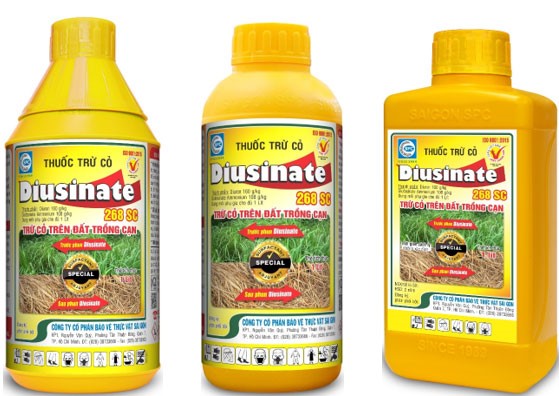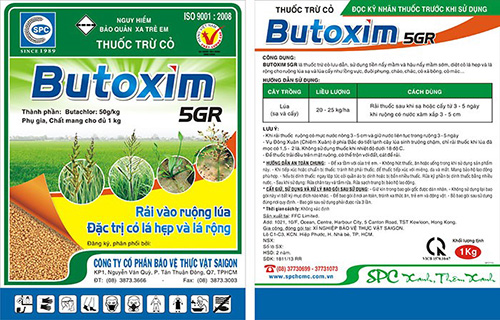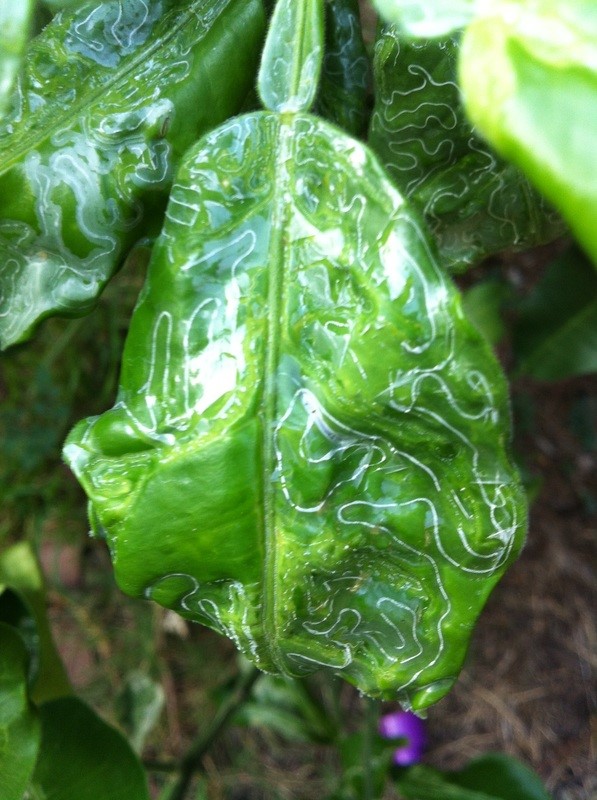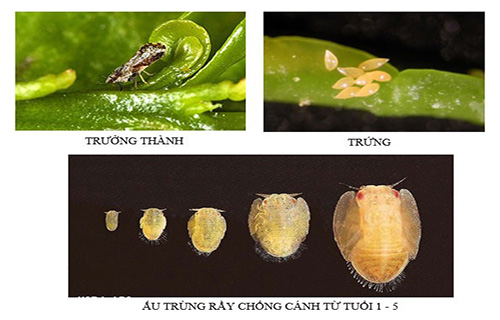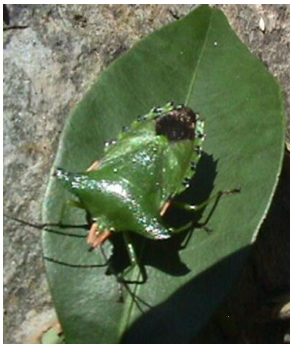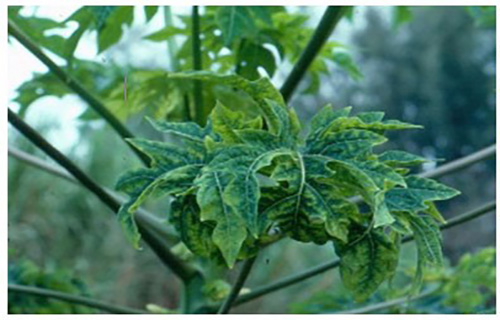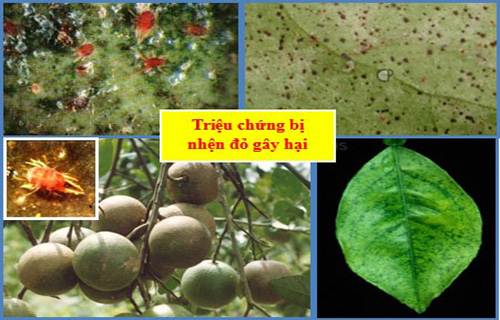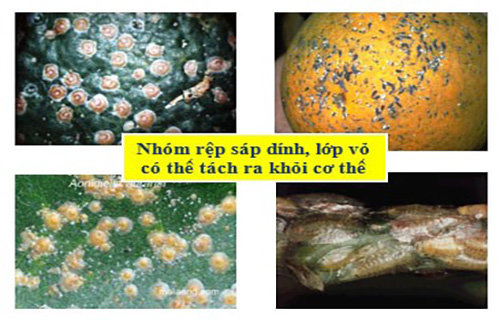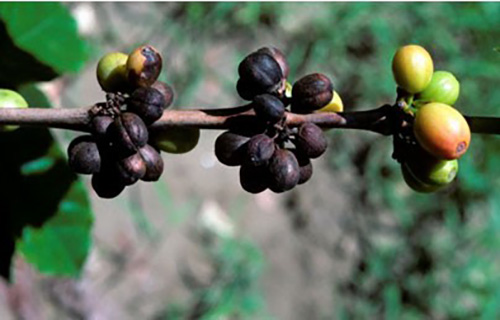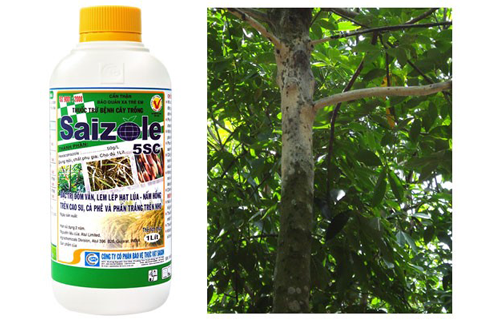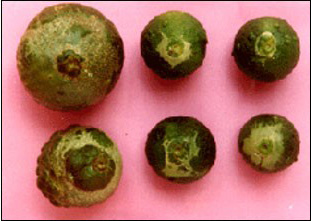|
DIUSINATE 268SC
21/06/2023
NEW DIUSINATE 268SC HERBICIDE The demand for using pesticides is increasingly diverse and highly specialized, especially for the herbicide group. Grasping the above requirements and facing the situation of highly toxic non-selective herbicide products Recently banned for use such as Glyphosate, 2.4D, Paraquat, etc., scientists are always looking to combine and create new herbicides, hoping to replace banned products to help farmers with conditions for weed management in fields. In the section of Plant Doctor of this period, we would like to introduce to our readers and fellow farmers the Diusinate 268SC herbicide which is produced by Saigon Plant Protection Joint Stock Company. Test spray has been conducted for 3 consecutive years (2019-2021) in many regions, on many different crops, and the results obtained met the desired requirements such as: killing many species of weeds, convenience, and safety. for people and the environment. The product has the following outstanding technical characteristics: The product in suspension form contains 02 active herbicides that interact with each other, have non-selective effects, kill many types of weeds at all growth stages from seed, seedling to maturity. Because the product has a strong contact and systemic effect, Diusinate 268SC kills weeds quickly and completely - especially with weeds with strong growing leaves and deep roots. Diusinate 268SC with 02 active substances, Glufosinate Ammonium and Diuron, in addition to eliminating weeds for rubber gardens, in fact, can be used to eliminate weeds for reclaimed land, weeds on field border, coffee gardens, fruit trees,and citrus trees,longan, mango, cashew, rubber, sugarcane, cassava,... The dose used is from 3.5 to 4 liters of product/ha mixed with 500 liters of water, ie, mix 120-130 ml of product /16- liter-watertank or 180-200 ml of product/25-liter-watertank. SOME POINTS FOR USE 1. Shake the product bottle before mixing, after mixing, stir the product water in the spray tank. 2. Time of spraying: For perennial plants (fruit trees, industrial plants, etc.): Spray only when the tree is 3-4 years old, with a part of the trunk that has turned into wood 0.5m above the ground. For annual crops such as sugarcane, cassava, etc., only spray when sugarcane has internodes, cassava has a stem that has removed its leaves and is about 30cm high 3. Using a directional spray funnel, spray close to the weed leaves, avoiding the spray flying into the leaves and young stems of the plants. 4. Mix the product with clear water, adjust the fine mist and evenly wet the stems and leaves. Carefully read the manufacturer instructions (included on the packaging label) and the above notes when applied to actual production, you will surely be satisfied with the non-selective Diusinate 268 SC herbicide.
|
To prevent, in addition to plowing and burying weed seeds, collecting weed stalks and stumps left after tilling the land to burn, not letting weeds produce seeds in production fields, etc., the use of chemical products is still a measure. optimal because of its ability to thoroughly kill weeds, reduce labor and take advantage of more time than manual weeding.
Miner has the scientific name Phyllocnistis citrella Staint., family Phyllocnistidae, order Lepidoptera. The miner occurs in many countries in the tropics and subtropics. The main host of the miner is the citrus family - Rutaceae. In addition, the miner also attacks mangosteen and some other plants.
Adult is a small planthopper, with a body 2-3 mm long, the whole body is ash gray, slightly greenish, the wings are opaque with many small brown spots.Eggs are oval, 0.3 mm long, have a pointed end and are attached directly to the leaf surface, leaf axils.
Green bugs specialize in the fruit of citrus groups (oranges, tangerines, lemons, grapefruits, kumquats...), some people call them orange bugs, or orange suckers. Their scientific name is Rhynchocoris poseidon or Rhynchocoris humeralis.
In Vietnam, yellow leaf curl disease is very common on papaya trees, especially the disease is often severe in areas of high and continuous planting, areas with hot and arid climates. The disease has significantly reduced the yield and quality of papaya. Gardens that are infected early when the plants are young may not yield. However, up to now, many gardeners still do not know the cause and how to fix it.
Spider mites are common pests on citrus trees, especially in hot and dry climates that are suitable for spiders to grow and cause severe damage.The group of harmful spiders is usually very small in size, unlike the natural enemy spiders.
This group includes species that are generally very small in size, causing damage by sucking plant sap (on leaves, fruits, branches, stems).
There are many species of mealybugs present on the group of Oranges,Tangerines,Grapefruits and Lemons (Citrus), which can be divided into 2 groups:
+ Group of sticky mealybugs with common varieties such as Lepidosaphes, Aonidiella, Coccus and Saissetia.
+ Group of flower mealybugs with common genera and species such as Pseudococcus, Planococcus and Icerya purchasi.
Dry branches and berries disease often appear to be common damage on coffee gardens during the rainy season. The disease causes death of branchs, dry fruit, severely affects the canopy structure and coffee yield if not paid attention to prevention.
Pink disease commonly causes diseases on rubber plantations in the rainy season, especially on garden from 4-8 years old. This year, rubber has to go through a period of severe drought, weakening the tree, so now in tnshe rainy season it is easy to get infected. Therefore, it is necessary to pay attention to good management to avoid affecting the garden.
In recent years, the area of citrus has been expanded because it is a fruit tree with high economic efficiency. However, in order to sell at a high price, not only in quality but consumers also require the external beauty of the fruit, so pest management on citrus is a matter of great concern to farmers. The hot season is a favorable condition for thrips to develop and cause damage, affecting the commercial value of fruit.
- Headquarters
- SAIGON PLANT PROTECTION JOINT STOCK COMPANY
- RQ 1, Nguyen Van Quy St., Tan Thuan Ward, HCM City
- Tax code: 0300632232
- Tel: (028) 38 733 295 - 38 732 077
- Fax: (028) 38 733 003 - 38 733 391
- Website: www.spchcmc.vn - Email: info@spchcmc.vn
- SAIGON PLANT PROTECTION COMPANY
- SAIGON PLANT PROTECTION JOINT STOCK ENTERPRISE
- Lot C1-C3 Hiep Phuoc Industrial Park, Hiep Phuoc Commune, HCM City
- Tel: (028) 3873 4089 - Fax: (028) 3873 4086
- Affiliated Unit
-
- Quick Links
- Home
- About us
- Career Opportunities


